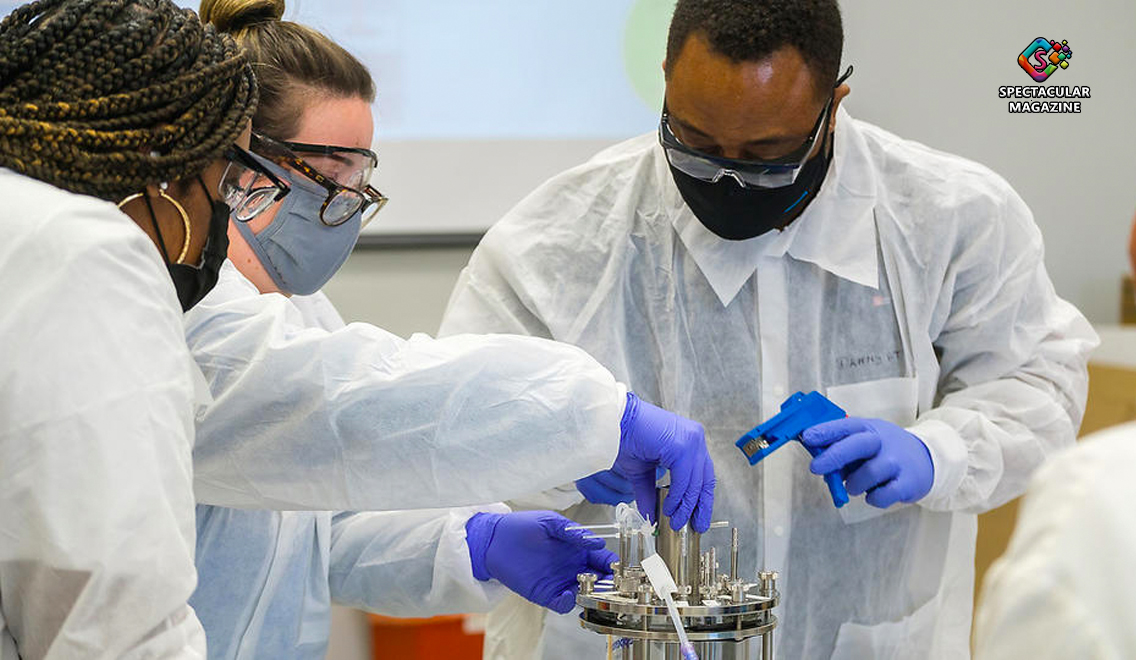NCCU Faculty Researchers Pioneer Treatments for Rare Breast Cancer Forms
DURHAM, NC—At North Carolina Central University’s Biomanufacturing Research Institute and Technology Enterprise (BRITE), researchers are making strides in drug discovery for two challenging forms of breast cancer: Inflammatory Breast Cancer (IBC) and Triple-Negative Breast Cancer (TNBC).
Understanding the Challenge
Breast cancer affects 1 in 8 women in the United States, with many treatment options available, including surgery, radiation, and chemotherapy. However, these treatments are less effective for rarer types like IBC and TNBC. “For rare forms of cancer, there may be few treatment options… chances are that big pharmaceutical companies may not be working on it,” said Professor Kevin Williams, Ph.D., who focuses on IBC research. This form of breast cancer, which accounts for 1% to 5% of cases, has a particularly low five-year survival rate of 40%. Unlike most breast cancers, IBC doesn’t present as a lump but may appear as a rash, making early diagnosis challenging. “If it gets missed or misdiagnosed, it progresses rapidly,” Williams explained.
Innovative Drug Approaches
To address the urgent need for new treatments, Associate Professor John Scott, Ph.D., is exploring drug repurposing for TNBC, a type that affects 10%–15% of breast cancer patients, especially younger African American women. Unlike other types of breast cancer, TNBC lacks biological markers that standard treatments target, making it harder to detect and treat. Drug repurposing leverages existing FDA-approved medications for new cancer-fighting purposes. “Aspirin, for example, was originally used for pain. Now it’s also used for cardiac patients,” said Scott, illustrating how this approach can reduce TNBC recurrence.
Cutting-Edge Techniques and Collaborations
The research teams at NCCU utilize advanced methods like high-throughput screening and text mining to identify and test potential treatments. BRITE’s facility holds 150,000 compounds, enabling researchers to rapidly test drugs for their effects on cancer cells. For IBC, Williams believes answers may lie within the existing medical literature, where text mining helps identify potential treatments that can be further tested in the lab.
Addressing Racial Disparities
The Julius L. Chambers Biomedical and Biotechnology Research Institute (JLC-BBRI) at NCCU focuses on reducing racial health disparities, an area where breast cancer research is vital. “Black people die more often… they are more likely to develop aggressive forms of cancer at an earlier age,” said Nicole Salazar Velmeshev, Ph.D., assistant professor in biological and biomedical sciences. Her research aims to understand how specific proteins (chemokine receptors) influence the spread of cancer cells, providing insights that could lead to more targeted therapies.
NCCU is also partnering with the University of North Carolina at Chapel Hill on the Carolina Breast Cancer Study (CBCS), which has ensured that half of its participants are Black, addressing critical disparities in breast cancer outcomes.
By pioneering research on rare and aggressive forms of breast cancer, NCCU is not only advancing medical science but also working to bridge racial gaps in healthcare.
Feature photo image courtesy of NCCU



One thought on “NCCU Faculty Researchers Pioneer Treatments for Rare Breast Cancer Forms”
Comments are closed.